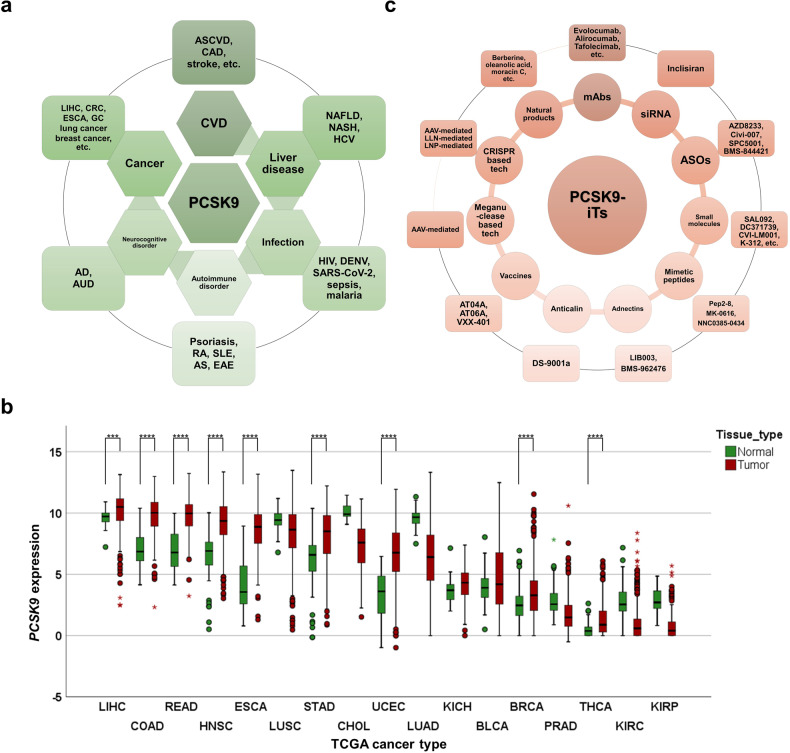Fig. 2.
The role of PCSK9 in various disorders, its aberrant expression in cancers, and the current PCSK9-iTs. a PCSK9 plays an important role in various disorders including cardiovascular diseases (CVDs), liver diseases, infection, autoimmune disorders, neurocognitive disorders, and cancer. CRC colorectal cancer, GC gastric cancer. b PCSK9 mRNA expression across different types of cancer in TCGA datasets. LIHC liver hepatocellular carcinoma, COAD colon adenocarcinoma, READ rectum adenocarcinoma, HNSC head and neck squamous cell carcinoma, ESCA esophageal carcinoma, LUSC lung squamous cell carcinoma, STAD stomach adenocarcinoma, CHOL cholangiocarcinoma, UCEC uterine corpus endometrial carcinoma, LUAD lung adenocarcinoma, KICH kidney chromophobe, BLCA bladder urothelial carcinoma, BRCA breast invasive carcinoma, PRAD prostate adenocarcinoma, THCA thyroid carcinoma, KIRC kidney renal clear cell carcinoma, and KIRP kidney renal papillary cell carcinoma ***P < 0.001, ****P < 0.0001. c Current PCSK9-iTs include monoclonal antibodies (mAbs), small interfering RNA (siRNA), antisense oligonucleotide (ASO), small-molecule inhibitors, mimetic peptides, adnectin, anticalin, vaccines, meganuclease based gene editing technology, clustered regularly interspaced short palindromic repeats (CRISPR) based gene editing technology, and natural products. Panels were illustrated by IBM SPSS Statistics and Microsoft PowerPoint

